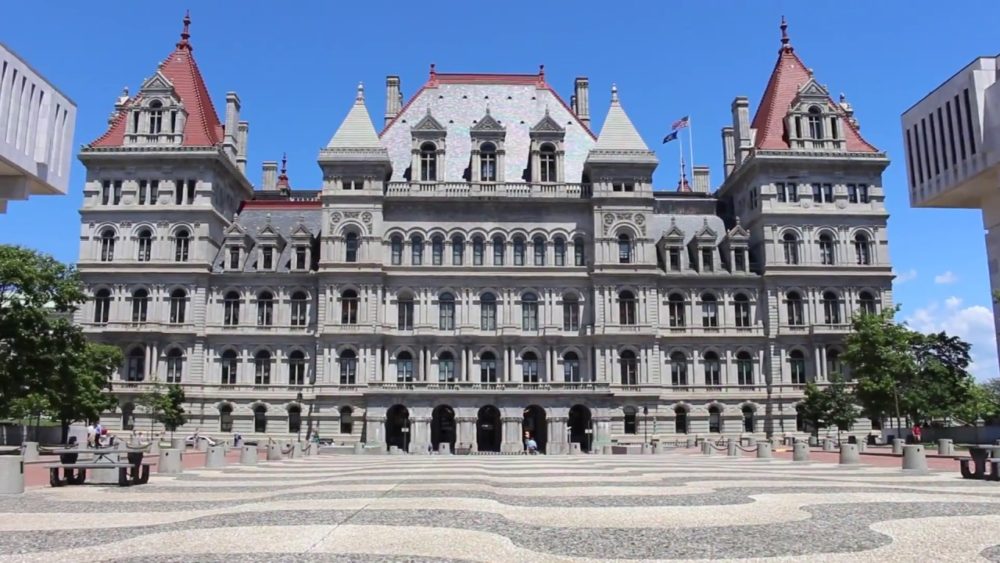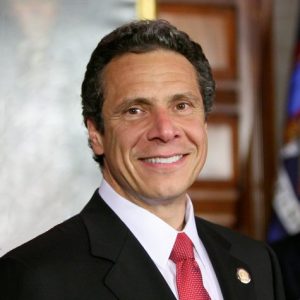September 3, 2020 •
Fort Collins City Council Approves New Campaign Finance Amendments

Fort Collins City Council approved several campaign finance changes on September 1 that will take effect in time for the April 2021 city election. The amendments include limits to how much individuals can contribute to limited liability corporations and political […]
Fort Collins City Council approved several campaign finance changes on September 1 that will take effect in time for the April 2021 city election.
The amendments include limits to how much individuals can contribute to limited liability corporations and political committees to support or oppose city races.
City Council voted 5-2 on the political committee and LLC contribution changes. This included votes in opposition from Mayor Wade Troxell and council member Ken Summers. In addition, council unanimously approved several other election code changes. The changes will apply to municipal elections for council seats, the mayoral race, and city ballot measures.
Current code allows LLCs to donate up to $75 to a candidate committee for a City Council member, or $100 to a committee for a mayoral candidate, which is the same limit for an individual. Because one person can be a member of multiple LLCs, people could bypass individual donation limits. This bypass could be accomplished by donating through various LLCs. Election finance records show this has happened in previous Fort Collins elections.
The amendment will bring this requirement into alignment with the state election code. The current code requires donations from LLCs to include statements that attribute the donation to specific LLC members. The donations attributed through an LLC will then count toward individual donation limits.
The political committee amendment will place a $100 cap on donations to political committees. There is currently no limit on contributions to political committees. This occurs when two or more people who come together to accept contributions or make expenditures to support or oppose one or more candidates.
The amendments will be presented for final passage on September 15.

Sacramento, CA Skyline - Basil D Soufi
The Fair Political Practices Commission (FPPC) voted to require more transparency and disclosure of those who use limited liability companies (LLC’s) to make political contributions. Aditionally, they would require campaigns to list the name of the actual person who directed […]
The Fair Political Practices Commission (FPPC) voted to require more transparency and disclosure of those who use limited liability companies (LLC’s) to make political contributions.
Aditionally, they would require campaigns to list the name of the actual person who directed the LLC political spending.
The first new regulation requires LLC’s involved in raising and spending money for political activity to name the person making the decisions.
The second new regulation requires campaigns receiving donations from LLC’s to also list the name of the person responsible for the political activity.
A 2019 FPPC Enforcement Division examination of LLC’s found it was relatively easy to find information about the type of business, its address and an agent for service of process.
However, it was extremely difficult to find the identities of the people behind the LLC’s owners or the true source of the political expenditures.
June 24, 2019 •
New York Legislature Adjourns Session

New York Capitol Building
The New York State Legislature adjourned on June 21. During the legislative session lawmakers passed a bill closing a limited liability company loophole regarding contribution limits. The bill limits annual political spending by an LLC to $5,000, the same limit […]
The New York State Legislature adjourned on June 21.
During the legislative session lawmakers passed a bill closing a limited liability company loophole regarding contribution limits.
The bill limits annual political spending by an LLC to $5,000, the same limit as corporations.
The Legislature also passed election reforms relating to early voting, creating a unified June primary for federal and local elections, and upgrading election technology.
January 21, 2019 •
Gov. Cuomo Outlines Ethics Reform in Executive Budget
Gov. Andrew Cuomo has proposed several campaign finance and ethics changes in his executive budget. These recommendations include creating a code of conduct for lobbyists and campaign finance reform. The lobbyist’s code of conduct would include lowering the registration threshold, […]
 Gov. Andrew Cuomo has proposed several campaign finance and ethics changes in his executive budget.
Gov. Andrew Cuomo has proposed several campaign finance and ethics changes in his executive budget.
These recommendations include creating a code of conduct for lobbyists and campaign finance reform.
The lobbyist’s code of conduct would include lowering the registration threshold, require reporting of campaign contributions, increase the revolving door provision from two to five years, along with additional disclosures and penalties.
Cuomo also called for banning corporate contributions, as well as lowering individual contributions to statewide and General Assembly candidates.
He also urged the Legislature to pass a revision that closes the Limited Liability Company loophole and prevents LLCs from contributing more than $5,000 annually.
May 26, 2016 •
Thursday News Roundup
Lobbying California: “California Senate Votes to Ban Private Talks at Coastal Board” by Alexei Koseff for Sacramento Bee Rhode Island: “R.I. House Unanimously Approves Lobbying Bill with Stricter Penalties” by Jennifer Bogdan for Providence Journal Campaign Finance New York: “Gov. […]
 Lobbying
Lobbying
California: “California Senate Votes to Ban Private Talks at Coastal Board” by Alexei Koseff for Sacramento Bee
Rhode Island: “R.I. House Unanimously Approves Lobbying Bill with Stricter Penalties” by Jennifer Bogdan for Providence Journal
Campaign Finance
New York: “Gov. Andrew Cuomo Offers Eight Options to End LLC Campaign Cash” by Casey Seiler for Albany Times-Union
Ethics
“These States Are Stepping Up to Reform Money in Politics in 2016” by Paul Blumenthal for Huffington Post
“State Dept. Inspector General Report Sharply Criticizes Clinton’s Email Practices” by Rosalind Helderman and Tom Hamburger for Washington Post
Florida: “Facing Bribery Charges, Opa-locka Commissioner Rams SUV into Tree, Killing Himself” by Charles Rabin, Jay Weaver, David Ovalle, and Michael Sallah for Miami Herald
Elections
“This Is What the Future of American Politics Looks Like” by Michael Lind for Politico
“As Donald Trump Pushes Conspiracy Theories, Right-Wing Media Gets Its Wish” by Jonathan Martin for New York Times
Ohio: “Ohio’s Limits on Early Voting Are Discriminatory, Judge Says” by Richard Pérez-Peña for New York Times
May 25, 2016 •
New York Governor Seeks to Close Fundraising Loophole
Gov. Andrew Cuomo has proposed eight bills to the state Legislature to close a controversial loophole in campaign finance law permitting limited liability companies (LLCs) to make donations up to $60,800 per statewide candidate, with an aggregate limit of $150,000. […]
 Gov. Andrew Cuomo has proposed eight bills to the state Legislature to close a controversial loophole in campaign finance law permitting limited liability companies (LLCs) to make donations up to $60,800 per statewide candidate, with an aggregate limit of $150,000.
Gov. Andrew Cuomo has proposed eight bills to the state Legislature to close a controversial loophole in campaign finance law permitting limited liability companies (LLCs) to make donations up to $60,800 per statewide candidate, with an aggregate limit of $150,000.
Each bill offers different levels of control over LLC funding with one seeking to close the loophole for all candidates running for state office, another impacting only gubernatorial and state Legislature candidates, and four separate bills aiming to close the loophole for at least one state office.
All of the bills propose to bring the LLC contribution limit in line with state limits on corporate contributions to candidates and committees, which are currently set at $5,000 annually.
July 23, 2015 •
Lawsuit Filed Challenging New York’s ‘LLC Loophole’
The Brennan Center for Justice, on behalf of several New York lawmakers, filed suit against the New York State Board of Elections, challenging a 1996 board ruling that treats limited liability companies (LLCs) as individuals. The ruling has the result […]
 The Brennan Center for Justice, on behalf of several New York lawmakers, filed suit against the New York State Board of Elections, challenging a 1996 board ruling that treats limited liability companies (LLCs) as individuals. The ruling has the result of creating a loophole allowing LLCs to circumvent stricter contribution limits imposed upon other business entities, namely partnerships and corporations.
The Brennan Center for Justice, on behalf of several New York lawmakers, filed suit against the New York State Board of Elections, challenging a 1996 board ruling that treats limited liability companies (LLCs) as individuals. The ruling has the result of creating a loophole allowing LLCs to circumvent stricter contribution limits imposed upon other business entities, namely partnerships and corporations.
The board had an opportunity to overturn its 1996 ruling at its April 2015 board meeting, but board members split along party lines to uphold the ruling, thus prompting the Brennan Center for Justice to file suit.
Plaintiffs allege the LLC loophole allows special interest groups to funnel tens of millions of dollars into political campaigns without transparency. Corporate contributions are limited to $5,000 per calendar year; partnerships are limited to $2,500 per calendar year at the partnership entity level. Under the 1996 board ruling, LLCs can contribute substantially more than other business entities because they are treated as individuals.
The lawsuit was filed in the Supreme Court of New York, County of Albany.
State and Federal Communications, Inc. provides research and consulting services for government relations professionals on lobbying laws, procurement lobbying laws, political contribution laws in the United States and Canada. Learn more by visiting stateandfed.com.

